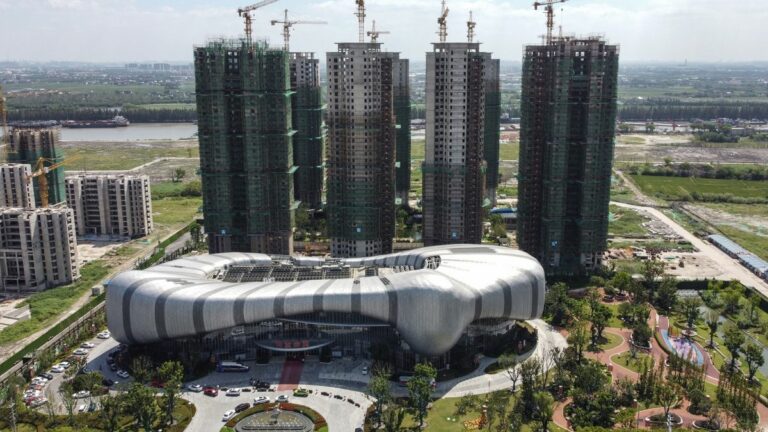Thai Real Estate Boom in the Era of Chinese Investment

From Bangkok’s urban buzz to Chonburi’s coastal allure, Thailand’s real estate is telling a tale of rapid growth, external influences with “new Rich” investors From China
Cost-Effective Agency
KPI and Results focused. We are the most visible Marketing Agency for China. Not because of huge spending but because of our SMART Strategies. Let us help you with: E-Commerce, Search Engine Optimization, Advertising, Weibo, WeChat, WeChat Store & PR.
The big BOOM of Thailand’s real estate market, backed significantly by recent government policies, is impossible to ignore. With Prime Minister Srettha Thavisin’s short yet impactful tenure and strategic collaborations with China, there’s a palpable shift in the bilateral investment dynamics. However, while Chinese investments promise significant economic benefits, there’s a parallel narrative emerging: the need to address Thailand’s affordable housing challenge. As we explore the shifting sands of Thai real estate, it’s imperative to ask: Can Thailand create a harmonious blend of foreign investment and local housing solutions?
Inside Thailand’s Real Estate Phenomenon
- A Rising Trend: In the first half of 2023 alone, there’s been a 14.7% uptick in condominium transfers to foreign clientele. This shift sees Chinese buyers at the helm, accounting for a whopping 47.0% of these transfers. It’s a testament to the growing appeal of Thailand’s real estate to global investors, especially the Chinese.
- Strategic Locations: Thailand’s real estate allure isn’t distributed evenly. Chonburi leads in foreign condominium transfers, but Bangkok isn’t far behind. The preference for these locales suggests a trend towards urban and scenic investments.
- The Dual-edged Sword of Chinese Investment: Chinese capital flowing into Thai real estate isn’t just about property; it represents a broader strategy to solidify economic bonds. While this influx contributes to economic growth via job creation, tourism boosts, and infrastructure enhancement, it also inadvertently escalates property prices. The result? An acute affordable housing crisis for the Thai populace.
- Impact on Local Buyers: Chinese predilection for luxury properties in prime areas like Bangkok and Chonburi has catalyzed unprecedented property valuations. These escalating prices, coupled with a spillover effect on neighboring regions, have rendered previously accessible zones out of reach for many Thai citizens.
- The Path Forward: While the foreign investment benefits are undeniable, there’s a pressing need for a balanced approach. By introducing tighter regulations on foreign property acquisitions and initiating social housing initiatives for the less affluent, Thailand can strike a balance. Prioritizing local economic development and amplifying residents’ purchasing prowess will not only elevate living standards but also forge a sustainable economic trajectory that serves both domestic needs and foreign investor interests.

Thailand Biggest Challenges
Thailand faces an intensifying housing challenge as the surge in property prices outstrips the rate of income growth, leading to precarious living conditions for many. This predicament may deepen with the influx of foreign, especially Chinese, investments, which tend to escalate property valuations and exacerbate the lack of reasonably-priced housing. source
investments cast a wide ripple effect on the broader housing ecosystem. The dilemma presents itself: Can Thailand’s leadership strike a balance between economic expansion and addressing housing concerns? Overlooking the housing deficit in the quest for economic surge might exacerbate social divides and discontent, jeopardizing national harmony and growth.
Read more
The Role of Chinese Real Estate Investors
The influx of Chinese private capital into Thailand’s property sector is sounding alarms among local buyers, mainly due to its pronounced effect on property rates.
A standout repercussion is the amplified property valuations, predominantly in coveted urban locales and picturesque regions. Chinese investors display an inclination towards high-end properties in prime spots like Bangkok and the coastal Chonburi province. Their appetite for premium condos and upscale residences has catapulted property prices in these areas, making it tough for locals to afford homes in previously attainable locations.
In the heart of Thailand’s bustling urban centers, a silent tug-of-war is unfolding between soaring property values and the quest for affordable living
Conclusion
In sum, as Thailand rides this wave of real estate growth, championed by Chinese investment, the challenge lies in ensuring this growth is both sustainable and inclusive. The government’s actions in the coming years will play a pivotal role in shaping the nation’s real estate future, ensuring that prosperity isn’t just for the few, but for all.






